OregonCSTA
The Oregon Computer Science Teachers Association (OregonCSTA) is an organization of teachers training teachers in Oregon since 1984. Our main focus is professional development in the areas of computer science and engineering education for K-12 educators and extended program volunteers.
Subscribe to our newsletter for upcoming announcements and events!
SAVE THE DATE!
SuperQuest 2025: AI Palooza
August 4-7 and August 11-14
Virtual Delivery
Registration will open soon!
Complete this SURVEY to vote for the sessions you want offered!
These sessions will be offered in two or three hour blocks, morning, afternoon, or evenings.
- Make Your Intro CS Class Count as a Math Credit Level: 9-12
Changes to the Oregon high school math standards have opened up the opportunity for computer science to count toward a student’s three required credits of math under the “quantitative” pathway. Bring your curriculum, lesson plans, and unit maps—we’ll help you align them to current math standards. No math endorsement needed. - AI – The Good, the Bad, the Ugly of Harnessing It for the Classroom and Beyond Level: K-12
Hands-on exploration of AI chatbots like ChatGPT, Gemini, and NotebookLM. Test their capabilities, limitations, and classroom relevance. For beginners and curious minds alike. - AI for Elementary Educators Level K-6
A session designed specifically for K–6 teachers. Learn how to use AI tools for differentiation and support, and explore tools being designed for younger learners. Bring your own device! - Inside the Black Box: AI, Energy, and Educational Design Level: 9-12
Peek inside how large language models function, examine the energy toll, and learn how students can use AI effectively for coding and creative work. Also includes time-saving tips for teachers. - AP Java – Approaches to Maximize AP CSA Java Exam Scores Level: 9-12
Best practices and instructional strategies from 20+ years of AP CS experience, including past College Board participation and exam grading. - CAD in the Classroom and Digital Fabrication Level 6-12
Overview of CAD tools for K–12 education, grading strategies, and hands-on project ideas. Includes digital fabrication technologies like 3D printing and laser cutting. - Fun Things to Do with AI, In and Out of the Classroom Level K-12
Explore creative uses of AI—from lesson planning and gamification to recipes and music generation. Learn how to have fun with AI while improving your workflow. - My CS Journey and How It Shaped My Program/Mindset Level 6-12
A reflective session on the presenter’s experience from CS student to educator. Highlights the importance of diversity and introductory courses in building equitable CS pathways. - Arduino Programming + Circuits Level 6-12
Make code physical! Learn how to teach circuits and coding using Arduino boards, both in simulation and real-world setups. - Age-Appropriate AI: How to Approach AI in the Classroom, Guilt Free!Level: Grade 2–12 educators, all subjects; especially useful for tech coaches, STEM/CS teachers, and librarians.
How do we teach AI responsibly at different grade levels? This session gives practical lesson ideas, framing strategies, and critical thinking prompts for grades 2–12. - The PD Quizshow! Level: Grade 4–10 educators; ideal for new CS teachers, or anyone exploring coding integration
A fast-paced, hands-on session that teaches CS concepts through a gamified quiz format. Expect to learn, laugh, and walk away with classroom-ready content. - CS+X: Integrating Computer Science into Any Subject (or Vice Versa!) Level: Grade K–12 teachers, especially those teaching core subjects, STEM, or CS; instructional coaches welcome
Explore ways to infuse CS into language arts, science, social studies, and math. Gain interdisciplinary lessons and tools to make CS more engaging and meaningful. - Hands-On AI – Making Tailored AI with Google Gemini’s Gems Level K-12
Learn how to build and train your own AI assistants using Google Gemini’s “Gems” feature. Great for personalized tools and student engagement. - Agile Project Development Level: 9-12
Agile is the industry standard for managing software and team-based projects. Learn the roles, tools, and rituals of Agile—including sprints, scrums, and backlogs—for use in classrooms and clubs like OGPC.

